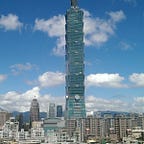HILD 12 — Discussion 8
Kwon’s article shows how immigration policies and the treatment of immigrants by a country exposes their adverse effects on family relationships. For example, Kwon points out that “[t]hose who remain at home feel displaced and marginalized, as their surroundings change rapidly due to remittance-driven development” (479). Indeed, “Korean Chinese face the implementation of a restrictive entry policy by the Korean governmen (Kwon 479). Arguably, the anxiety of waiting is largely driven by uncertainty of the fate of their family members in a foreign land, but this feeling of being reliant on someone afar without an option to help them in their endeavors also drives a sense of distantness between the migrant worker and their families despite the gesture of sending money back home being one of intimacy and care itself. Simultaneously, while blood-relationships are separated by physical geography and by abstract state policies, new (fraudulent) relationships were also being created. As Korean Chinese people met resistance in applying for long-term residence, many Korean Chinese women had “undertaken marriages of convenience by divorcing their real Korean Chinese husbands to marry fake Korean husbands”(Matsumura, Lecture 7; Kwon 485). Under the discriminatory policies set out by the South Korean state, genuine family relationships were forced to, in some ways, be disrupted and eroded just so migrants may have a better chance to remain in their new homes. I think that in reading’s Kwon’s article, we find that immigration policies (especially restrictive ones that target one’s freedom of movement)— intentionally or unintentionally — lead to the ‘suspension’ of traditional family connections as both the migrant worker and their family understand the precariousness of immigration, yet have little good option to relieve themselves of their circumstances.
At its core immigration heavily affects and restructures relationships and dynamics within an individual’s family. I think a personal map that that traces the travel history that follows where an individual has been up to their arrival to the country they are emigrating to, as well as the activities and movements of, and further (lack of) contact between the individual and their relatives, would be beneficial in visualizing this shakeup in relationship. The flow of capital that one obtains should also be traced to show how an individual divides their wages between themselves and their family, as it is often that migrant workers working in a more economically-developed country tends to take advantage of (relatively) higher wages and send the money back to their origin country. I also think it would be beneficial to map an individual’s points of contact with people they meet in their jobs at their destination country to show relationships that aren’t necessarily family-related, but can still evoke a sense of familial bond through solidarity between workers — or alternatively, their relationship with their exploiters trying to capitalize on their vulnerability in and unfamiliarity of a foreign land.
